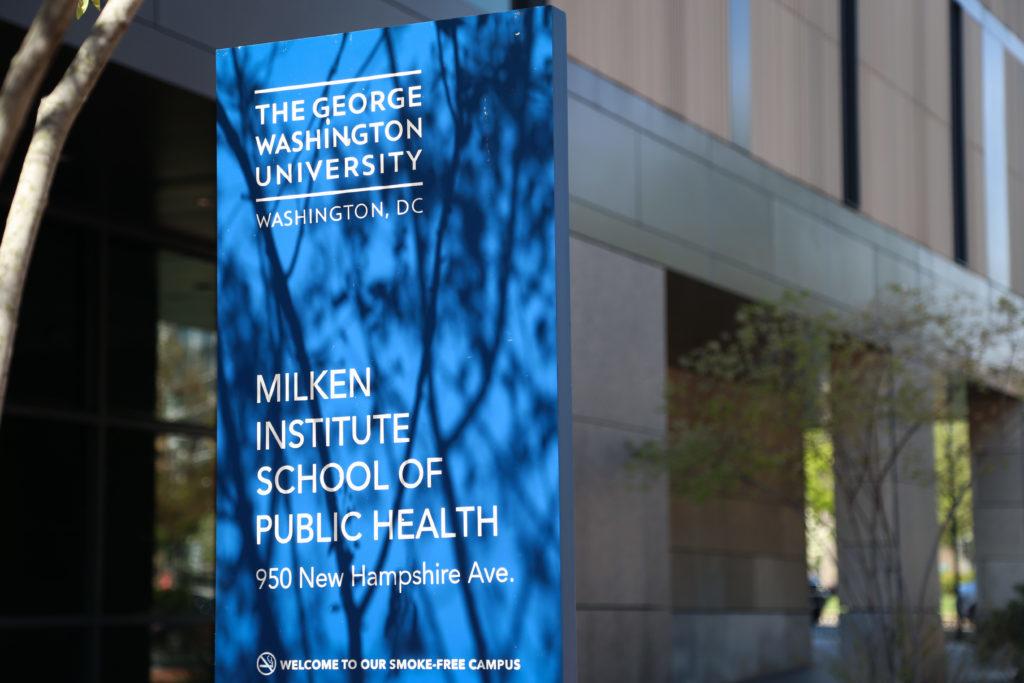A group of professors and a graduate student found that showing judges how global warming hurts public health initiatives could help lawyers make more compelling arguments in climate change cases.
In a study published in the American Journal of Public Health last week, researchers found that when plaintiffs include an argument about how pollution and climate change affects health, they can more effectively sway judges in their favor. The team of six, including four professors in the Milken Institute School of Public Health and the law school, analyzed 139 climate change court cases from 1990 to 2016 and conducted interviews for the study.
Cases with health arguments didn’t succeed more often, but researchers did find the argument could give plaintiffs standing to bring their case in front of a judge and argue that government actions are unreasonable. The researchers said courts are a “pivotal branch of government in shaping climate change policy,” and including health concerns in climate change litigation could lead to more effective policies.
LeRoy Paddock, the associate dean for environmental studies in the law school who wrote and edited the article, said the research for the study began in fall 2016. Sabrina McCormick, an associate professor of occupational and environmental health and the lead researcher, secured a grant from the National Science Foundation three years ago to fund the project, Paddock said.
Paddock said McCormick “thought that it would be interesting to look at the increasing trend of litigation occurring around climate issues,” which was the impetus for the study.
McCormick could not be reached for comment.
The study consists of 78 interviews with litigants, industry representatives, scientists and legal experts, among others, and an analysis of 139 U.S. climate change cases. Researchers selected cases from a database of environmental court cases developed last year by Columbia Law School and StateAG.org, an education website about the role of state attorneys general.
Paddock said the results of the study – which he characterized as “not particularly surprising” – demonstrate how public health arguments are effective in climate litigation. Climate activists could use the information to win lawsuits that would curb climate change, Paddock said.
“It gave us a clear idea of both how and the number of instances where health is playing a role in climate litigation,” he said.
Daniel Kim, a doctoral student in the Trachtenberg School of Public Policy and Public Administration who worked on the study, said including public health arguments in cases can also persuade the judge’s decision by attracting attention from outside activist groups.
“We found that the use of public health in the legal argument may grant plaintiffs legal standing and may bring support from groups such as environmental non-governmental organizations and media attention – which could influence the legal decisions on these cases,” Kim said in an email.
Robert Glicksman, a professor of environmental law who was also involved in the project, said courts are particularly empowered to impact climate change under President Donald Trump’s administration, because the executive and legislative branches have already unraveled Obama-era environmental regulations and are expected to continue this practice.
Trump announced the United States would withdraw from an international climate agreement last summer, and his administration is expected to repeal the Clean Power Plan – legislation that aimed to cut power plant emissions by more than 30 percent by 2030.
Glicksman said the Environmental Protection Agency’s “deregulatory agenda” under Trump makes the courts an “important vehicle” for publicizing the importance of reducing greenhouse gas emissions and for pushing government officials to consider climate change when making legal decisions.
Glicksman also said the authors of the study are arranging a conference next fall at the University to address the role of science in climate litigation.
“Among the issues we will discuss at the conference is the increasing ability of scientists to link specific events such as wildfires, drought and hurricanes to climate change and how litigants can use that developing science to support their efforts to halt actions that contribute to climate change,” he said in an email.




